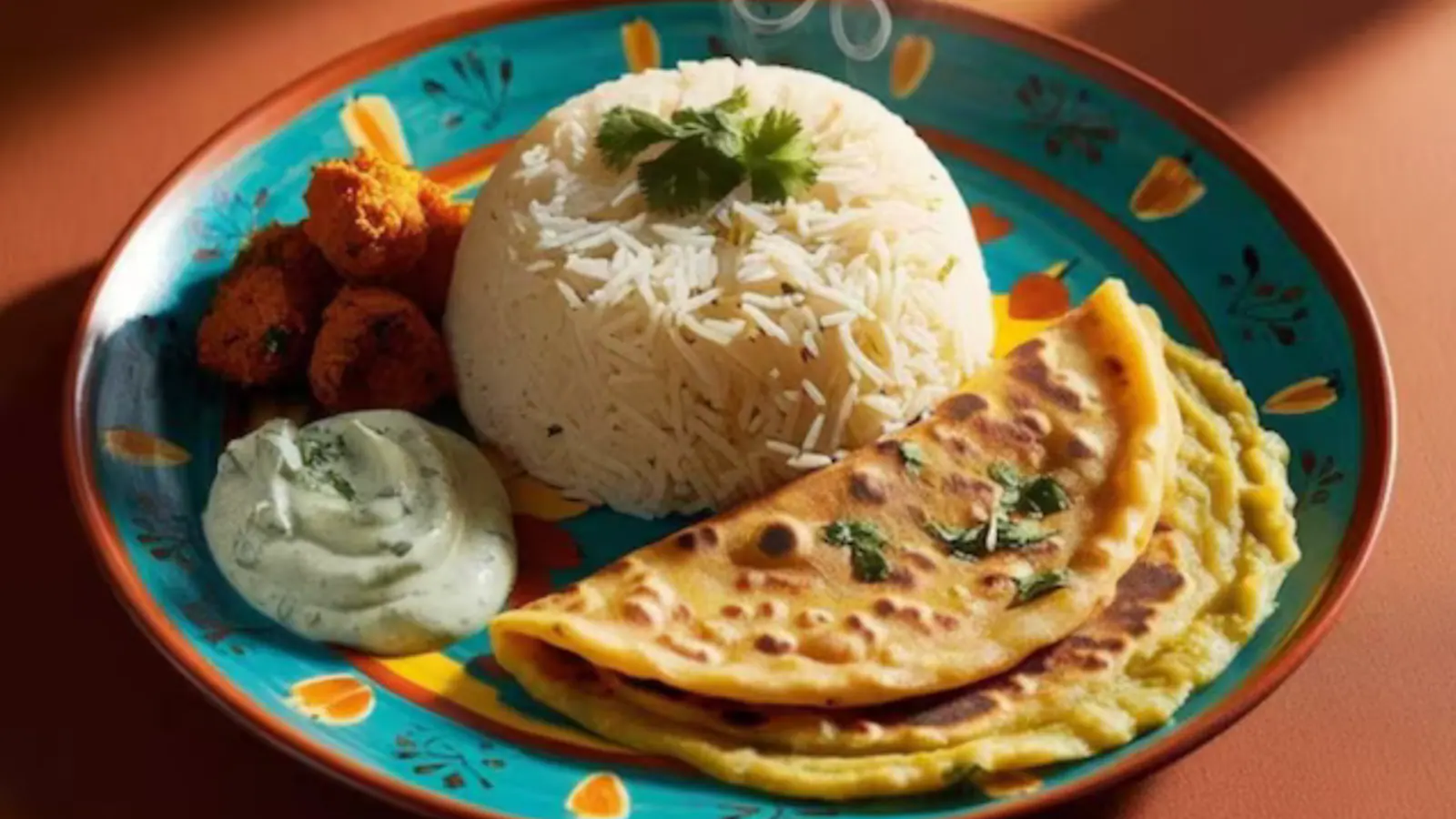By News18,Sameeksha Sharma
Copyright news18

Health experts are often asked whether it is better to have rice or roti for dinner. Both are staples of Indian cuisine, but their effects on the body can differ depending on lifestyle, health goals, and digestive capacity. Here’s a closer look at which option may be more beneficial for your health and sleep.
Roti, also known as chapati, made from wheat, is rich in fibre, protein, and complex carbohydrates. These nutrients provide slow-release energy, keeping the stomach full for longer.
Blood sugar control: Roti has a lower glycaemic index than rice, helping maintain stable blood sugar levels.
Supports weight loss: It keeps you fuller for longer, reducing the chances of overeating.
Better digestion: High fibre content promotes a healthy digestive system.
When To Avoid
Roti may feel heavy for those with constipation or digestive issues. Eating it late at night can also take longer to digest.
Rice, particularly plain rice or khichdi, is high in starch and digested quickly. This makes it a light, comforting option for dinner.
Easy digestion: Rice is quickly absorbed, keeping the stomach light at night.
Aids sleep: Carbohydrates in rice increase serotonin and melatonin, promoting restful sleep.
Low sodium: Rice is low in sodium, which is beneficial for people with high blood pressure.
When To Avoid
Those aiming for weight loss should limit white rice. Diabetics should also monitor their rice intake carefully.
Both roti and rice offer unique benefits for dinner. Roti is better for weight management and blood sugar control, while rice is ideal for a light meal, better sleep, and easier digestion. Choosing the right option depends on your health goals and lifestyle.



